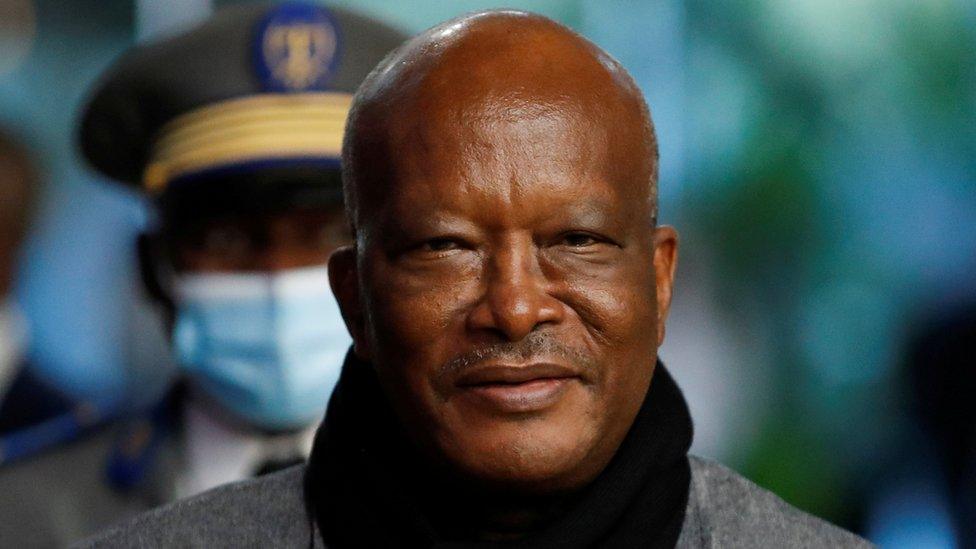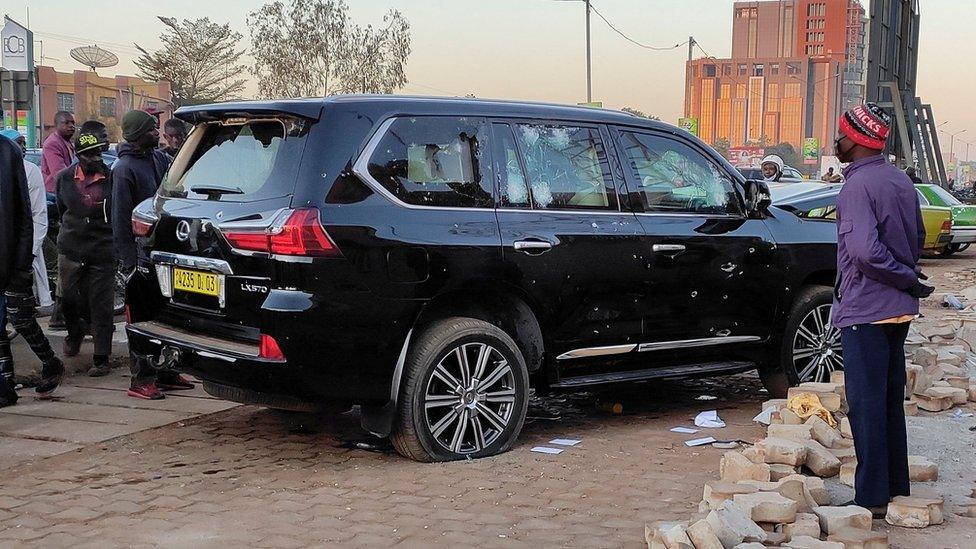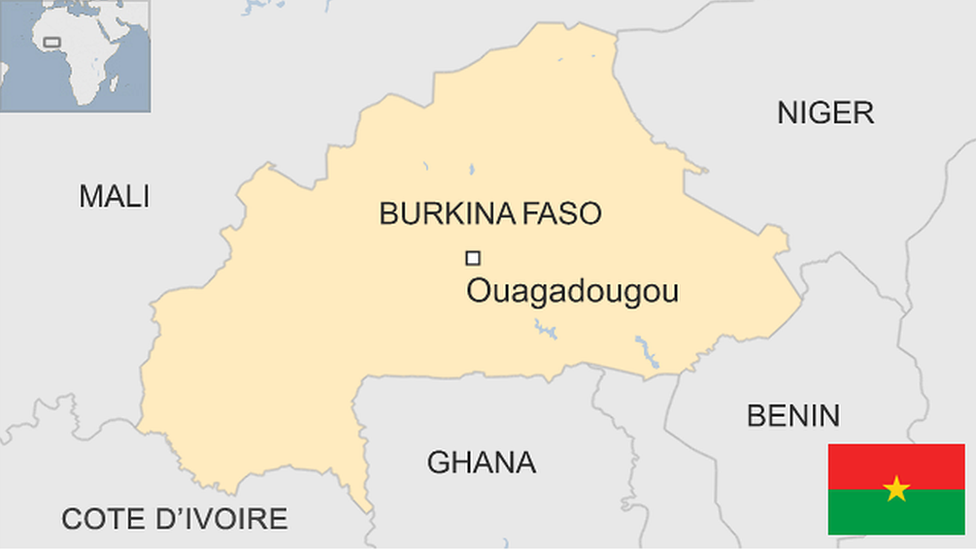Burkina Faso 'coup attempt' condemned by Ecowas
- Published

President Kaboré pictured at the Paris Peace Forum in November
Burkina Faso's neighbours have condemned what they call an attempted coup in the West African state.
President Roch Kaboré's whereabouts are unclear amid conflicting reports on whether he has been detained by dissident forces.
Gunfire was heard overnight near the presidential palace and at barracks in the capital, Ouagadougou.
The mutinying troops have demanded the sacking of military chiefs and more resources to fight Islamist militants.
Mr Kaboré has not been seen in public since the crisis began in the early hours of Sunday, but two posts have appeared on his Twitter account.
The latest one calls on "those who have taken up arms to lay them down in the higher interest of the nation", while an earlier one congratulates the national football team on their win in an Africa Cup of Nations match.
It is unclear whether Mr Kaboré or someone else posted the tweets.

Burkina Faso: The basics
A former French colony, Burkina Faso has suffered chronic instability since gaining independence in 1960, including several coups.
The country's name, meaning "land of the honest men" was picked by revolutionary military officer Thomas Sankara who took power in 1983. He was toppled and killed in 1987.
Since 2015, the country has been fighting an Islamist insurgency that spilled over from neighbouring Mali. This has fuelled anger in the military and damaged the once important tourist industry.

In a strongly worded statement, West African regional bloc Ecowas said it "holds the military responsible for the physical wellbeing" of the president.
"Ecowas is following with great concern the evolution of the political and security situation in Burkina Faso, characterised since Sunday 23 January by an attempted coup d'etat
"Ecowas condemns this extremely grave act," the statement added.
Video from the capital appears to show armoured vehicles - reportedly used by the presidency - peppered with bullet holes and abandoned in the street.
Mobile internet services have been disrupted, though fixed-line internet and domestic wi-fi are working.
Soldiers have also surrounded the state television headquarters and there was no live programming on Monday.
BBC reporter Simon Gongo says a sense of normality has returned to the streets. No further shooting can be heard, and people and cars are moving through Ouagadougou.
A crowd has gathered in front of the president's private residence, he says, wanting to understand what happened on Sunday night.
With no official comment from the military or the government, people are anxiously waiting for an official statement on the situation, our reporter says.
Some security sources say the president and other government ministers are being held at the Sangoulé Lamizana barracks in the capital.
However, others say he has been taken to a secure location for his own protection.
On Sunday, hundreds of people came out in support of the soldiers and some of them set fire to the ruling party's headquarters. A night-time curfew has since been imposed.
The French embassy in the capital has issued a statement saying the situation remains confused, and advising French citizens not to go outside unnecessarily, and never at night.
French schools will stay closed and two Air France flights have been cancelled, it said.
The unrest comes a week after 11 soldiers were arrested for allegedly plotting a coup.
But discontent has been growing in Burkina Faso over the government's failure to defeat an Islamist insurgency in the country since 2015.
That escalated to new highs in November, when 53 people, mainly members of the security forces, were killed by suspected jihadists. And on Saturday, a banned rally to protest against the government's perceived failure led to dozens of arrests.
Similar troubles in neighbouring Mali led to a military coup in May 2021 - one that was broadly welcomed by the public.

Multiple cars apparently used by the presidency were found in the morning with bullet holes
In Burkina Faso, mutinying soldiers made several demands, including the removal of the army's chief of staff and the head of the intelligence service; more troops to be deployed to the front line; and better conditions for the wounded and soldiers' families.
On Sunday, Defence Minister Gen Barthélémy Simporé downplayed previous rumours of the president's capture, and the nature of the unrest at large.
State television, meanwhile, characterised the sound of gunfire at military barracks as the actions of a small few disgruntled soldiers rather than a widespread fight or coup attempt.

Related topics
- Published26 February 2024
